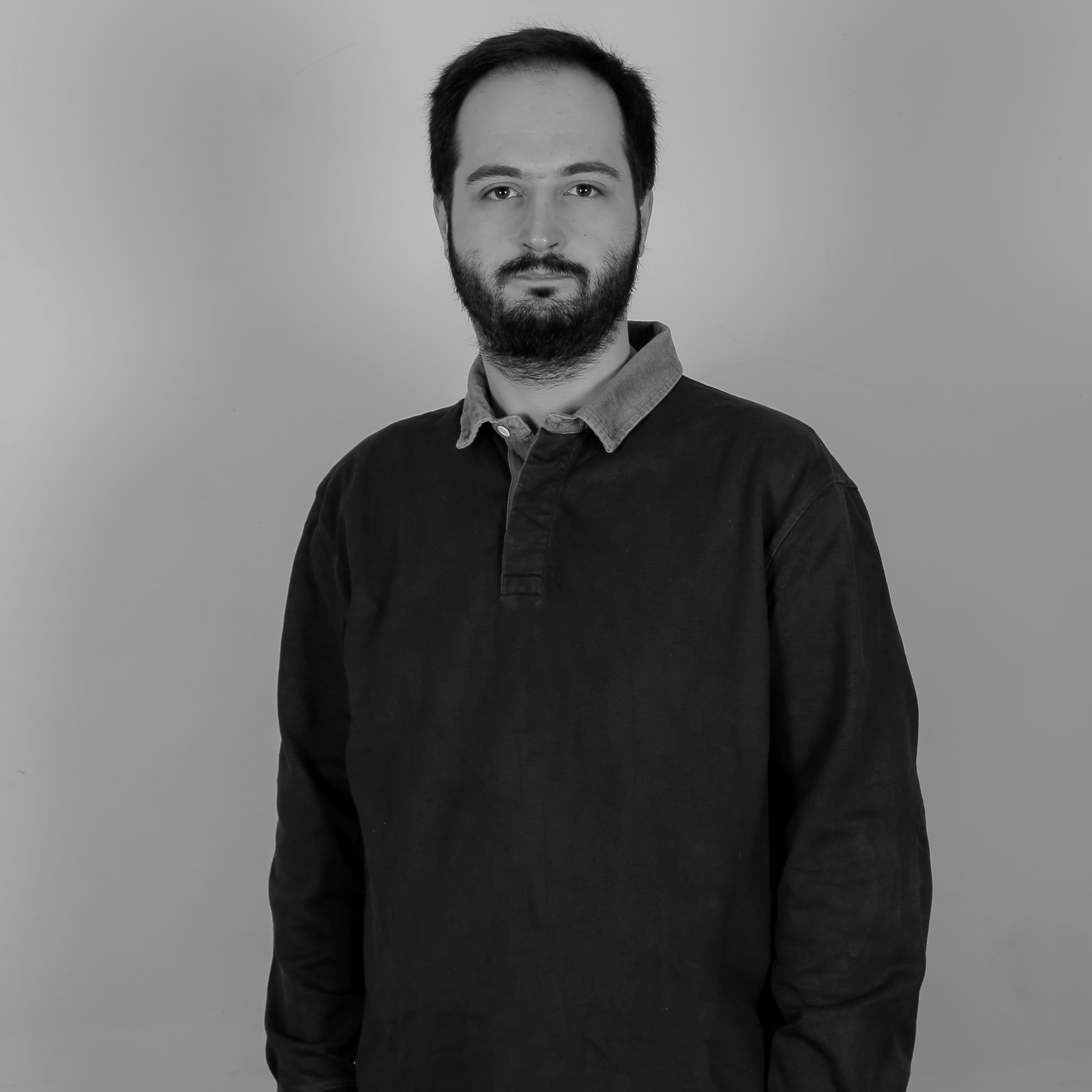Researcher with more than 10 years of experience conducting quantitative and qualitative research in Georgia and the South Caucasus. He earned a Ph.D. in Sociology from Tbilisi State University and defended his thesis in 2021. His dissertation on "Social Equality and Electoral Preferences" investigated the electoral behavior features in Georgia. Since 2015, Rati has been an invited lecturer at multiple Georgian universities, teaching research methods courses. From 2021, Rati joined the Georgian Institute of Public Affairs as head of the sociology program.
From 2013 to 2020, he worked with the research organization CRRC-Georgia, where he conducted public opinion surveys, collected, and analyzed data. In 2020-2021 he also served as the research director at TMI. Currently, he is involved in monitoring, evaluating, and learning activities for various local and international projects.
Courses:
- Quantitative research methods;
- Data analysis and research report preparation;
- Advanced course in social science research methods.
Research and Publications:
Shubladze, R., & Tavberidze, Z. (2024). Regional Students’ Resilience: Coping with Precarious Life in Tbilisi, Georgia. Caucasus in Focus, no. 2 (July 2024).
Shubladze, R. (2024) Targeted Social Assistance Program in Georgia and Its Link to Electoral Outcomes. Social Justice Center. Research report.
Shubladze, R. (2024) Youth Study Comparative Analysis 2023: Armenia, Azerbaijan, Georgia, Friedrich-Ebert-Stiftung South Caucasus (FES)
Shubladze, R, Sichinava, D., Khoshtaria, T., & Valiyev, A. (2023) Youth study youth voices of Azerbaijan: attitudes, values and future prospects - Youth Study 2023, Friedrich-Ebert-Stiftung South Caucasus (FES).
Shubladze, R, Sichinava, D., & Khoshtaria, T. (2023) Generation of Independent Georgia: In Between Hopes and Uncertainties - Youth Study 2023, Friedrich-Ebert-Stiftung South Caucasus (FES)
Shubladze, R., Tavberidze, Z., Aronia, M., Kaplanishvili, I., Edisherashvili, N., Chkheidze, S., Megrelidze, M., Affordable Housing and Access to Higher Education: Where and how do students from the regions live in Tbilisi?. Report for GIPA small research grant project [In Georgian]
Shubladze, R., & Kipiani, A. (2022). Attempts of simultaneous preservation and modernization of traditional Georgian culture: Observation of martial arts and folk-dance groups in Tbilisi. In L. H. Seukwa, E. Marmer, & C. Silla (Eds.), The Challenge of Cultural Heritage and Identity for Inclusive and Open Societies: Young People's Perspectives from European and Asian Countries. Peter Lang.
Shubladze, R, Chabukiani, N., Khomeriki, T., & Janashia, S. (2021) Georgian Youth and History: the survey of experience, attitudes, and values. Research report for Heinrich Boell Foundation [In Georgian]
Shubladze, R., & Khoshtaria, T. (2020). The gap between support for democracy and liberal values in Georgia. Caucasus Analytical Digest, 116.
Mustapić, M., Perasović, B., Vukušić, D., Khoshtaria, T., Neal, M., Shubladze, R., Stamou, E. (2019). Mapping reports of cultural heritage. European Commission.
Projects:
- Electoral compass 2024 Georgia – Member of Academic team. Co-author of Georgia’s Political Landscape report based on the results of Electoral compass data collectio
- Cultural Heritage and Identities of Europe's Future (CHIEF) Project – multinational project funded through European Union’s Horizon 2020 research and innovation program under grant agreement No. 770464. Role: Researcher of the CRRC-Georgia team. (Period: 2018-2021)
- Youth and History project – funded by Heinrich Boell Foundation, South Caucasus Regional Office, implemented by WeResearch. Role: sampling specialist and data analyst. (Period: 2021-2022)
- FES Study “Youth in the Eastern Partnership and Russia” – The central aim of these studies is to identify, describe and analyze the attitudes and behavioral patterns of young people in contemporary societies. These youth studies follow a standardized methodology based on the Shell Youth Study incorporating elements of the World Value Survey. Role: co-author of Georgia country report. (Period: 2022-2023)
- Affordable Housing and Access to Higher Education: Where and how do students from the regions live in Tbilisi?. Project prepared for GIPA small research grant call. Collaborative project by GIPA academic personnel and students. Role: Team leader and principal investigator, report co-author. (Period: 2022-2023)
Research interests:
Elections, post-soviet transformation, social movements, Europeanization, youth culture and youth studies.


